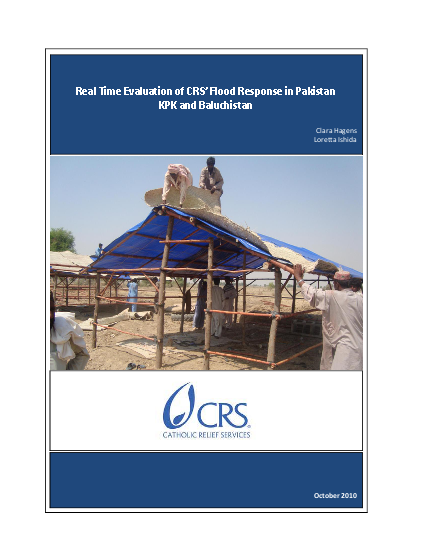
This real-time evaluation (RTE) was held approximately 9 weeks after Catholic Relief Services’ flood response began, to allow staff to learn from achievements and identify ways to improve on-going implementation. The methodology was designed to address standard RTE evaluation criteria with an additional focus on issues of beneficiary accountability. The RTE collected qualitative data from beneficiaries and non-beneficiaries in KPK and Baluchistan and conducted interviews with staff from Catholic Relief Services and its implementing partners. The findings demonstrated a positive and timely flood response despite challenging conditions associated with the high and difficult mountain terrain in KPK and stagnant flood waters in parts of Baluchistan. They also highlighted some weaknesses in the response, which varied by project location. In KPK, the response had yet to meet changing needs due to the upcoming winter, and women’s involvement in both project design and implementation remained low due to lack of female staff and cultural restrictions. In Baluchistan, supply chain delays existed and formal banking and cash transfer systems had not yet been set up at all locations. The RTE included a day of reflection with agency and partner staff, which culminated in a set of recommendations and an immediate action plan for each location. The plans not only addressed existing gaps or weaknesses but were intended to maintain the high degree of community participation, transparency, and overall quality achieved by the early phase of the response.